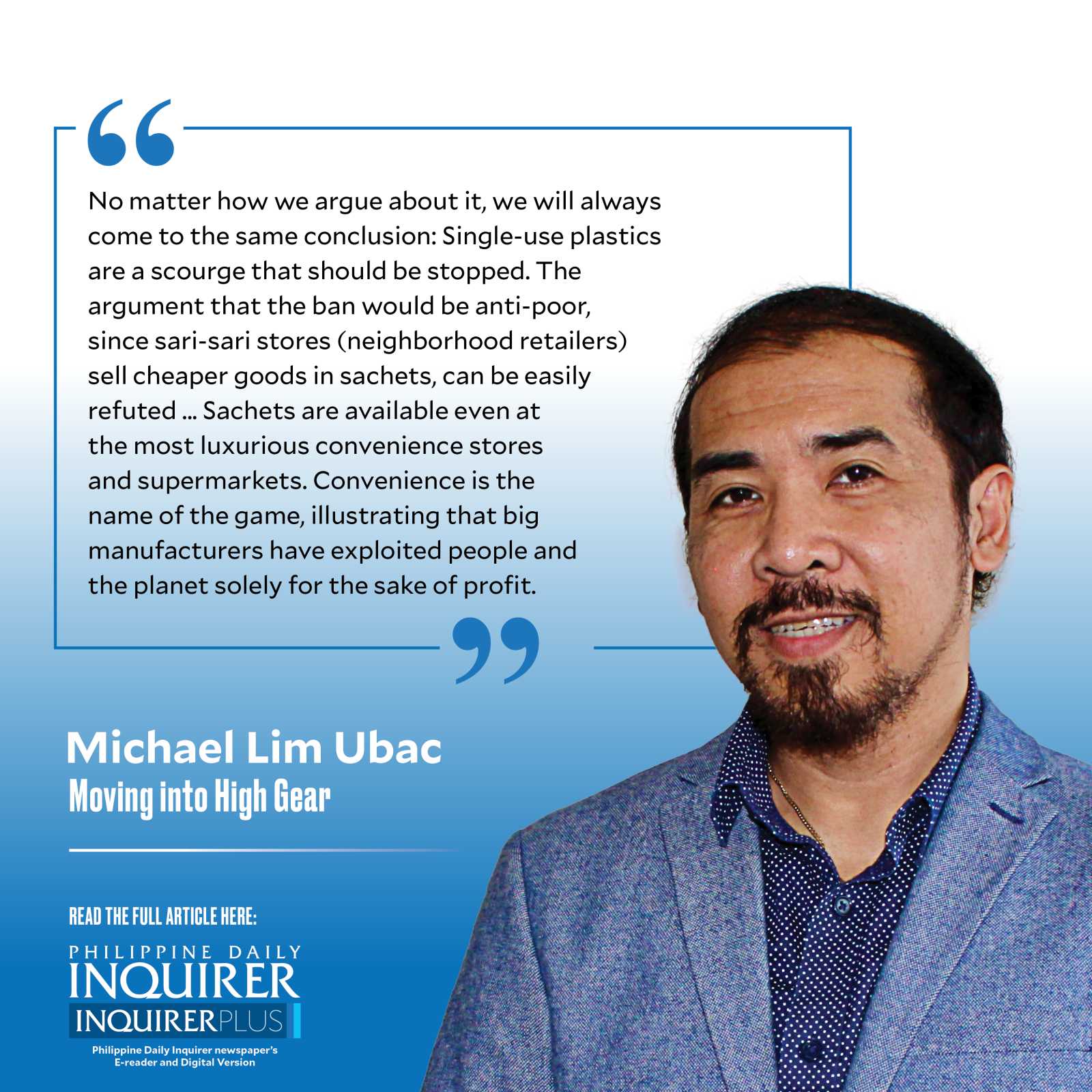
Inundated with plastics? Turn off the tap.
The Philippines can play a significant role in the global fight against plastic pollution by taking multiple measures, including banning single-use plastics.
A global plastics treaty that bans single-use plastics received almost 90 percent support from Filipinos in a Greenpeace survey conducted across 19 countries last February. Some 94 percent of Filipino respondents believed that a cap on plastic production would stop plastic pollution, prevent biodiversity loss, and limit global warming to 1.5 degrees Celsius.
This would be welcome news to negotiators from around the world who met from April 23-29, 2024, in Ottawa, Canada, to hammer out a United Nations (UN) treaty to end plastic pollution, including its scourge on the marine environment. In 2022, the assembly began negotiations in Uruguay and planned to finalize a treaty in South Korea in November.
Let’s consider the extent of our single-use plastic problem and its impact on the world’s oceans and biodiversity.
In 2019, Filipinos consumed 163 million sachets, 48 million shopping bags, 45 million thin film (labo) bags, and three million pieces of diapers every day, according to the environmental justice group Global Alliance for Incinerator Alternatives (Gaia).
The latest brand audit by Gaia has shown that the “sachet culture” in the Philippines and Southeast Asia is widespread, which is causing harm to marine life and clogging waterways. Gaia released the report before the Earth Day celebration last month.
Every year, the Philippines generates 2.7 million tons of plastic waste. Most of the plastic waste ends up in landfills and bodies of water (20 percent of which ends up in the ocean) due to the combination of these two factors: the proliferation of single-use plastics combined with a very weak waste management system.
Top ocean polluter. Using the study of Meijer et al. (2021), Our World in Data (https://tinyurl.com/ycx3ttkv), a scientific online publication, revealed that plastic pollution in the Philippines reached 36.38 percent in 2019, followed by India (12.92 percent), and Malaysia (7.46) percent.
According to GreenMatch (https://tinyurl.com/mtkcc9ys), the Philippines has the highest annual output of ocean plastic waste (356,371 metric tons) compared to the plastic waste produced by India (126,513), Malaysia (73,098), China (70,707), and Indonesia (56,333).
These figures are baffling to Sonia Mendoza, chair of Mother Earth Foundation, an environmental group that is championing a “zero waste” philosophy in waste management.
Mendoza noted that China is the largest plastic producer. Statista.com states that China produced 32 percent of global plastic in 2022. The rest of Asia accounted for only 19 percent, while North America supplied 17 percent. According to GreenMatch, China was only recycling 16 million tons of plastic waste out of a total of 60 million tons.
The UN Environmental Program did not rank nations but confirmed that the highest share of the world’s marine litter and plastic pollution came from Asia, with China, Indonesia, the Philippines, and Vietnam considered “hotspots.”
Drop in the bucket. Efforts to recycle plastic waste in our community are numerous, but scaling them up to become national programs is a challenge. These include the various ordinances in Metro Manila that ban the use of plastic bags; but why can’t authorities compel all local government units nationwide to do so? A barangay in Cavite is doling out a kilo of rice for every kilo of plastic waste. The “Zero Waste” campaign in Potrero, Malabon is harnessing the community’s power to separate waste at source, recycle nontoxic plastics, and compost food waste.
Commendable as they are, these are just a small drop in the bucket in an ocean of single-use plastics.
Mendoza is therefore pushing for a ban on single-use plastics and reducing plastic production. Comparing plastic production to a water tap, she said: “Our goal is to close the tap. The tap can’t be open while the bathtub is overflowing because only 9 percent of plastic waste is recycled globally.”
No matter how we argue about it, we will always come to the same conclusion: Single-use plastics are a scourge that should be stopped. The argument that the ban would be anti-poor, since sari-sari stores (neighborhood retailers) sell cheaper goods in sachets, can be easily refuted. Back in the day, we used to bring our own used bottles when buying vinegar, oil, and other condiments. Instant coffee wasn’t always packaged in sachets. They were mostly sold in glass jars that could be reused later as coffee mugs or containers.
Today, sachets are available even at the most luxurious convenience stores and supermarkets. Convenience is the name of the game, illustrating that big manufacturers have exploited people and the planet solely for the sake of profit.
—————-
For comments: lim.mike04@gmail.com; @umichaell